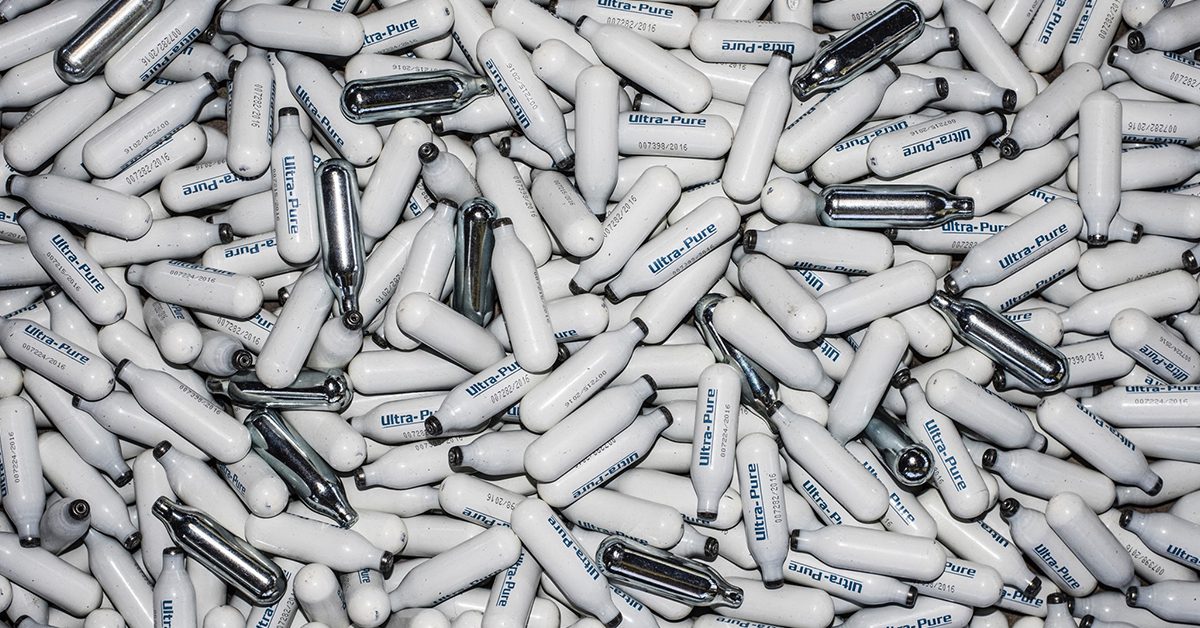Possession of laughing gas to be made a criminal offence
UK Government focus on health and safety of young people and target anti-social behaviour.
UK Government focus on health and safety of young people and target anti-social behaviour.

As a staggering statistic, three and a half tonnes of nitrous oxide canisters were collected at Notting Hill carnival in London in 2022. Nitrous oxide is a gas used for anaesthesia and pain relief in medical and dental procedures, and in the catering industry where it is used to make whipped cream.
According to the Crime Survey for England and Wales, nitrous oxide (also known as nos, whippits and laughing gas) is the second most used recreational drug after cannabis among 16- to 24-year-olds.
The UK government have announced that possession will be a criminal offence and there will also be tighter controls on retailers to prevent the supply of nitrous oxide for misuse. It goes against recommendations from the Advisory Council on the Misuse of Drugs (ACMD) which recently advised against new laws to ban nitrous oxide to avoid widespread criminalisation. The government have disagreed and will ban possession, unless held for legitimate reasons.
While nitrous oxide may provide a temporary feeling of euphoria and relaxation, its use comes with serious health risks. One of the primary risks of nitrous oxide is oxygen deprivation. When nitrous oxide is inhaled, it replaces oxygen in the lungs and bloodstream. This can cause a person to feel dizzy or lightheaded and can lead to unconsciousness if taken in large quantities. In severe cases, oxygen deprivation can result in brain damage or even death.
In addition to oxygen deprivation, nitrous oxide causes nerve damage because it inactivates vitamin B12. This vitamin is essential for maintaining healthy myelin, the insulation that surrounds nerves. When vitamin B12 is lacking or when it becomes inactivated, the nerves malfunction and people become unsteady or paralysed.
Young people are particularly at risk of vitamin B12 deficiency because they may not have fully developed their stores of this important nutrient.
Nitrous oxide is also highly addictive. When used regularly, it can lead to psychological dependence, as well as physical withdrawal symptoms such as headaches, insomnia, and irritability. This can make it difficult for young people to stop using the drug, even when they are aware of the health risks.
Another danger of nitrous oxide use is the risk of accidents and injuries. When under the influence of the drug, young people may engage in risky behaviours, such as driving under the influence or engaging in other dangerous activities. This can lead to serious accidents and injuries that can have long-term consequences for their health and well-being.
In conclusion, nitrous oxide is a dangerous drug that can have serious health risks for young people. It is important for parents, teachers, and healthcare professionals to educate young people about the dangers of nitrous oxide use and to provide support and resources for those who are struggling with addiction
BizSpace
Linford Forum
18 Rockingham Drive
Milton Keynes
Buckinghamshire
MK14 6LY
What3words reference:
Make an enquiry:
Company No. 05174302
VAT No. 844 5092 22

 Health and safety risks of an ageing workforce – what employers need to...
Health and safety risks of an ageing workforce – what employers need to...